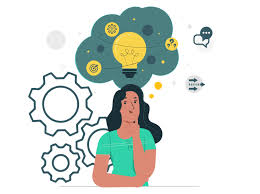
Published :
Updated :

Technology changes faster than any curriculum can track, which means the real competitive advantage belongs to people who know how to learn quickly. Five cognitive abilities separate high performers from everyone else.
Metacognition— watch yourself think: The best problem solvers don't just find answers. They pay attention to how they're thinking whilst they work. This practice, called metacognition, helps you catch mistakes in your reasoning before they become expensive errors. Ask yourself simple questions: "Why do I believe this?" or "What am I assuming without checking?" This kind of self-awareness turns you from someone who absorbs information into someone who actively shapes their own thinking.
Defending your position— build arguments that hold up:
Social media has trained us to react quickly, but professional success requires something different. You need to construct arguments that survive scrutiny. This doesn't mean winning debates for the sake of it. It means testing your ideas thoroughly before committing to them, explaining your reasoning clearly, and improving your thinking when others challenge it. Strong leaders welcome pushback because criticism makes their final decisions better.
Systems thinking —see how everything connects: Simple cause and effect rarely explains what happens in real organisations. Multiple factors interact constantly, creating unexpected outcomes. Mind maps help you explore how different ideas relate to each other. Flowcharts show you where processes break down. Causal loop diagrams reveal why solutions sometimes create new problems. Most workplace challenges involve interconnected systems where changing one element affects everything else.
The discipline of synthesis: Everyone drowns in information now. The valuable skill is knowing what matters. Good summarising isn't about making things shorter. It's about finding the core insight, separating useful information from distractions, and figuring out what action to take. This becomes crucial when you need to explain complex topics to people with different backgrounds or make decisions without perfect information.
Teaching as the fast track to mastery: Physicist Richard Feynman discovered something counterintuitive: teaching others is the quickest way to learn something properly yourself. When you explain concepts to classmates or colleagues, you immediately discover what you don't actually understand. You're forced to find better examples and organise your knowledge more clearly. Look for chances to tutor, present your work, or simply walk someone through your reasoning.
These skills build on each other over time. Other students might focus on memorising frameworks for exams, but you'll develop the cognitive foundation for learning anything faster and thinking more clearly about whatever problems you face later.
sakibmahmud176@gmail.com


 For all latest news, follow The Financial Express Google News channel.
For all latest news, follow The Financial Express Google News channel.